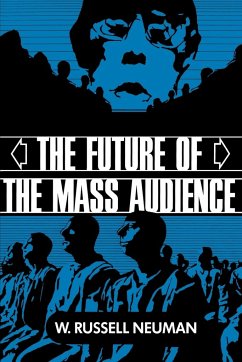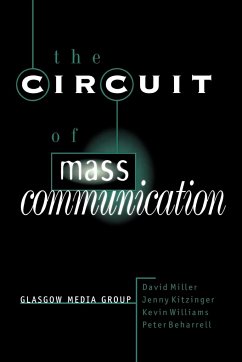
The Future of the Mass Audience

PAYBACK Punkte
21 °P sammeln!
The Future of the Mass Audience focuses on how the changing technology and economics of the mass media in post-industrial society will influence public communication. It summarises the results of a five-year study conducted in cooperation with the senior corporate planners at ABC, CBS, NBC, Time Warner, The New York Times and the Washington Post. The central question is whether the new electronic media and the use of personal computers in the communication process will lead to a fragmentation of the mass audience. Some analysts have suggested that with the growth of increasingly specialised ca...
The Future of the Mass Audience focuses on how the changing technology and economics of the mass media in post-industrial society will influence public communication. It summarises the results of a five-year study conducted in cooperation with the senior corporate planners at ABC, CBS, NBC, Time Warner, The New York Times and the Washington Post. The central question is whether the new electronic media and the use of personal computers in the communication process will lead to a fragmentation of the mass audience. Some analysts have suggested that with the growth of increasingly specialised cable television channels and electronic publishing, people will filter and pre-select news concerning only their own special interests and, as a result, cultural and political life will become increasingly polarised. This study demonstrates, however, that the movement towards fragmentation will be modest. It concludes that the production and promotion costs and economies of scale for electronic media put natural constraints on special interest, small audience programming. The conclusion sets forth a policy agenda for making the most of the participatory and democratic potential of evolving electronic communications systems.
Table of contents:
Introduction; 1. The communications revolution; 2. The logic of electronic integration; 3. The psychology; 4. The fragmentation of the mass audience; 5. The political economy of the mass media; 6. The future of the mass audience; Bibliography.
Table of contents:
Introduction; 1. The communications revolution; 2. The logic of electronic integration; 3. The psychology; 4. The fragmentation of the mass audience; 5. The political economy of the mass media; 6. The future of the mass audience; Bibliography.












